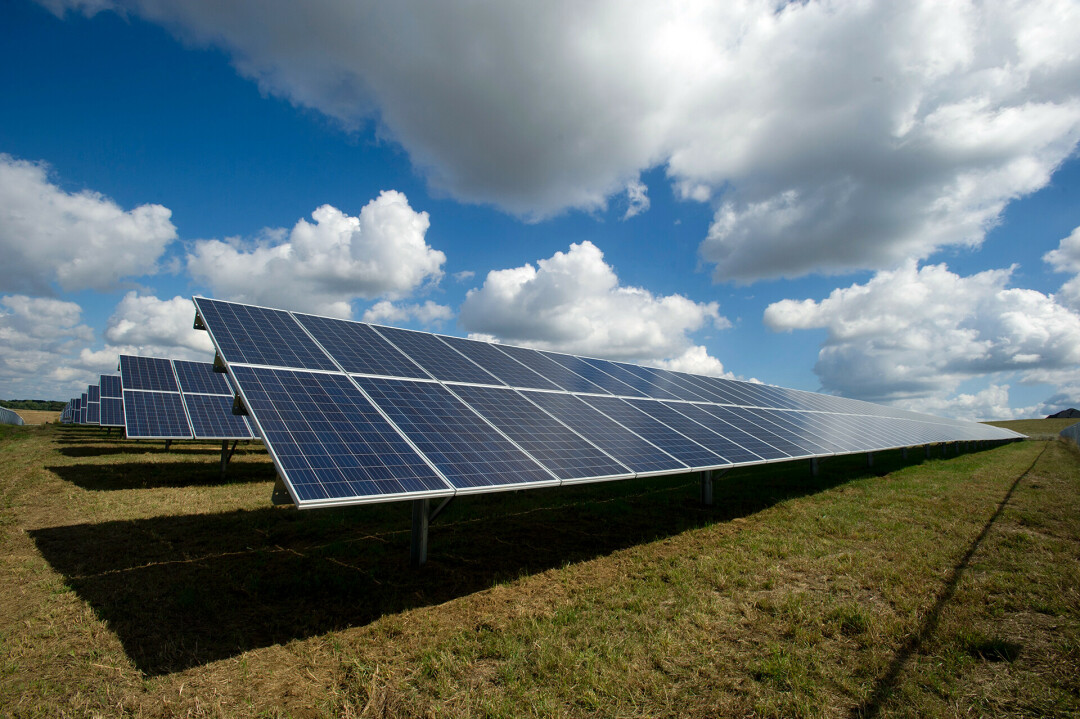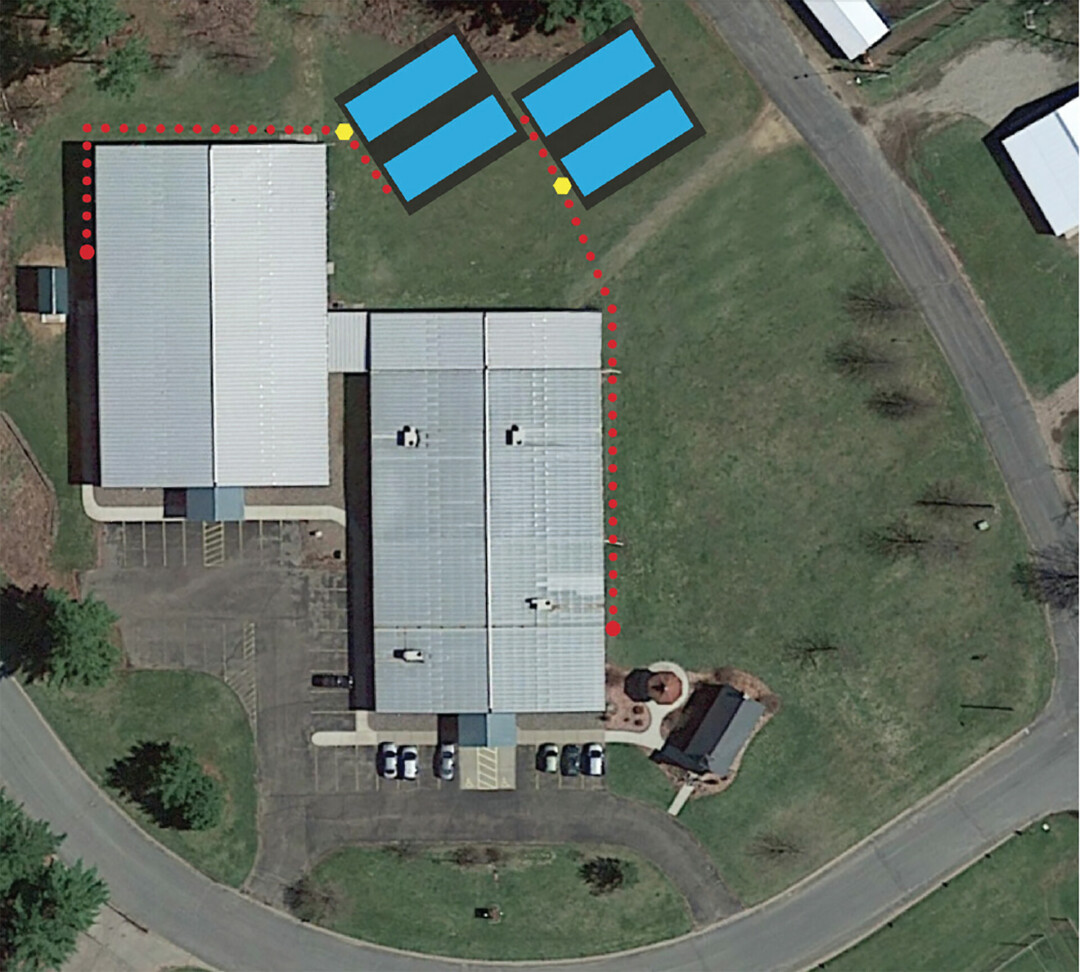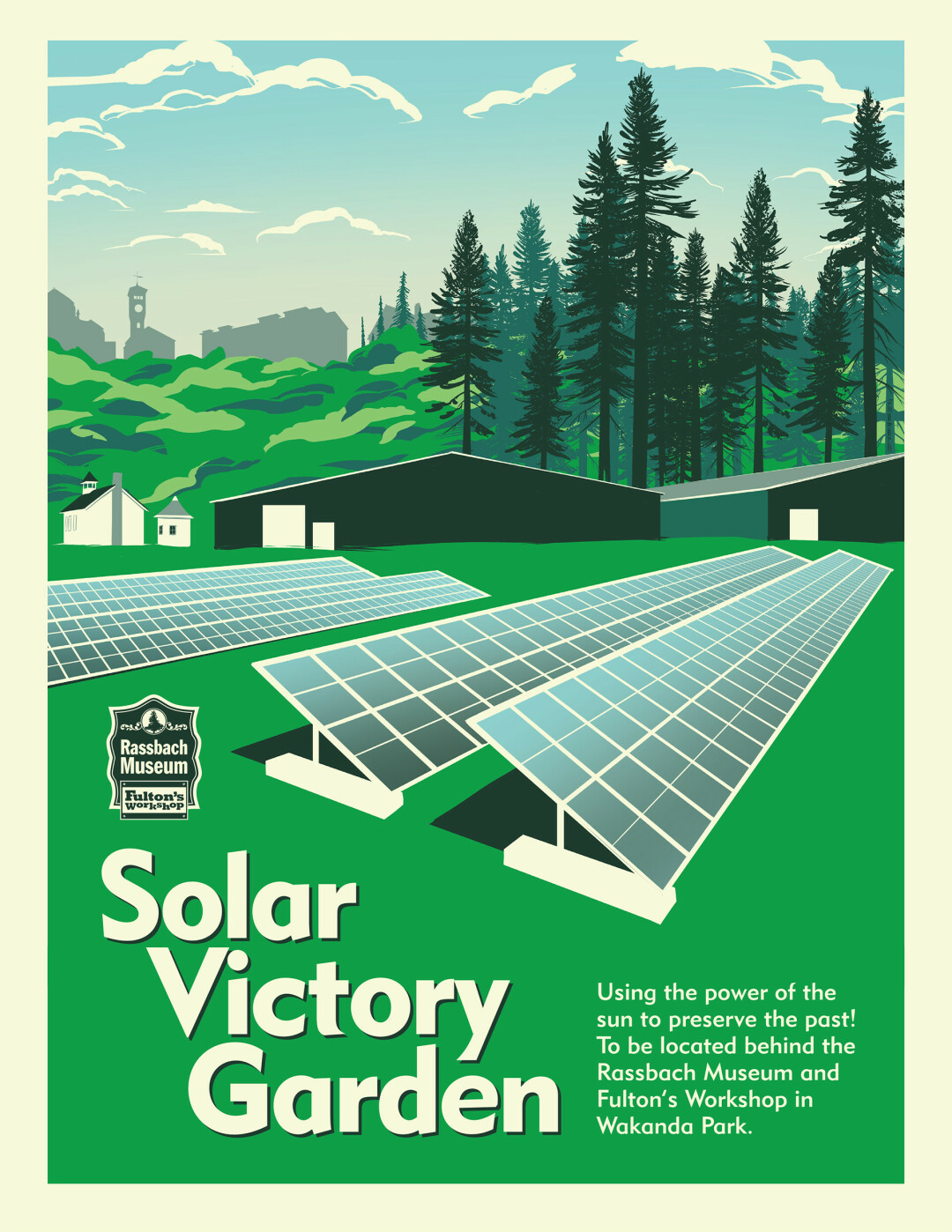HISTORY MEETS HELIACAL POWER: Rassbach Museum Fundraises for Solar Panels
inspired by WWII ‘Victory Gardens,’ museum plans for solar array

“There’s always been the idea,” said Melissa Kneeland, executive director of the Dunn County Historical Society. “Like, ‘Wouldn't it be cool to have solar panels?’ But it always seemed a little too big for us.”
That idea is now becoming a reality as the Rassbach Museum in Menomonie’s Wakanda Park edges closer to its monetary goal that will allow for solar panels to be installed behind the museum.

During a capstone class at UW-Stout, students brought proposals for ways the museum could be more sustainable and even suggested companies to get solar panel estimates from. This proposal showed the museum that not only was this possible but very much in their wheelhouse.
The City of Menomonie has set a goal to be completely carbon-free by 2050, and Kneeland said this project is the museum’s way of moving toward that goal.
The solar panels will be installed on the ground, instead of the roof, so people can learn more from them. The panels are also bi-facial, which means they can collect energy from light reflected off the snow in the winter. Hopefully, if all goes according to plan, the panels will be installed by the end of this year.
The museum decided to name this project the Solar Victory Garden due to its parallels with the “Victory Gardens” grown during World War Ⅱ. These were gardens shared by families, community members, and schools to not only help with food scarcity but to have a tangible thing available to them to help with war efforts.
“We’re connecting them to the Victory Gardens of World War Ⅱ because those were all about the community coming together with a shared goal and doing something to affect larger change,” Kneeland explained.
“We’re not growing food, but we’re growing energy,” she laughed. “It’s our way of connecting the past to the present.”
Currently, the project has received $65,000 in grant funding and more than $50,000 in donations, but $40,000 is still needed to pay off the project, with an added stretch goal of $21,000 for added sensors.

Donations of any amount can be made on the Dunn County Historical Society website.
The museum isn’t stopping here when it comes to sustainability: They are switching to LED lightbulbs, as well as making their landscape sustainable with three prairie gardens, a rain garden, and a butterfly garden – all to make Wakanda Park as Earth-friendly as possible.
If you want to learn more or to donate, visit dunnhistory.org.


